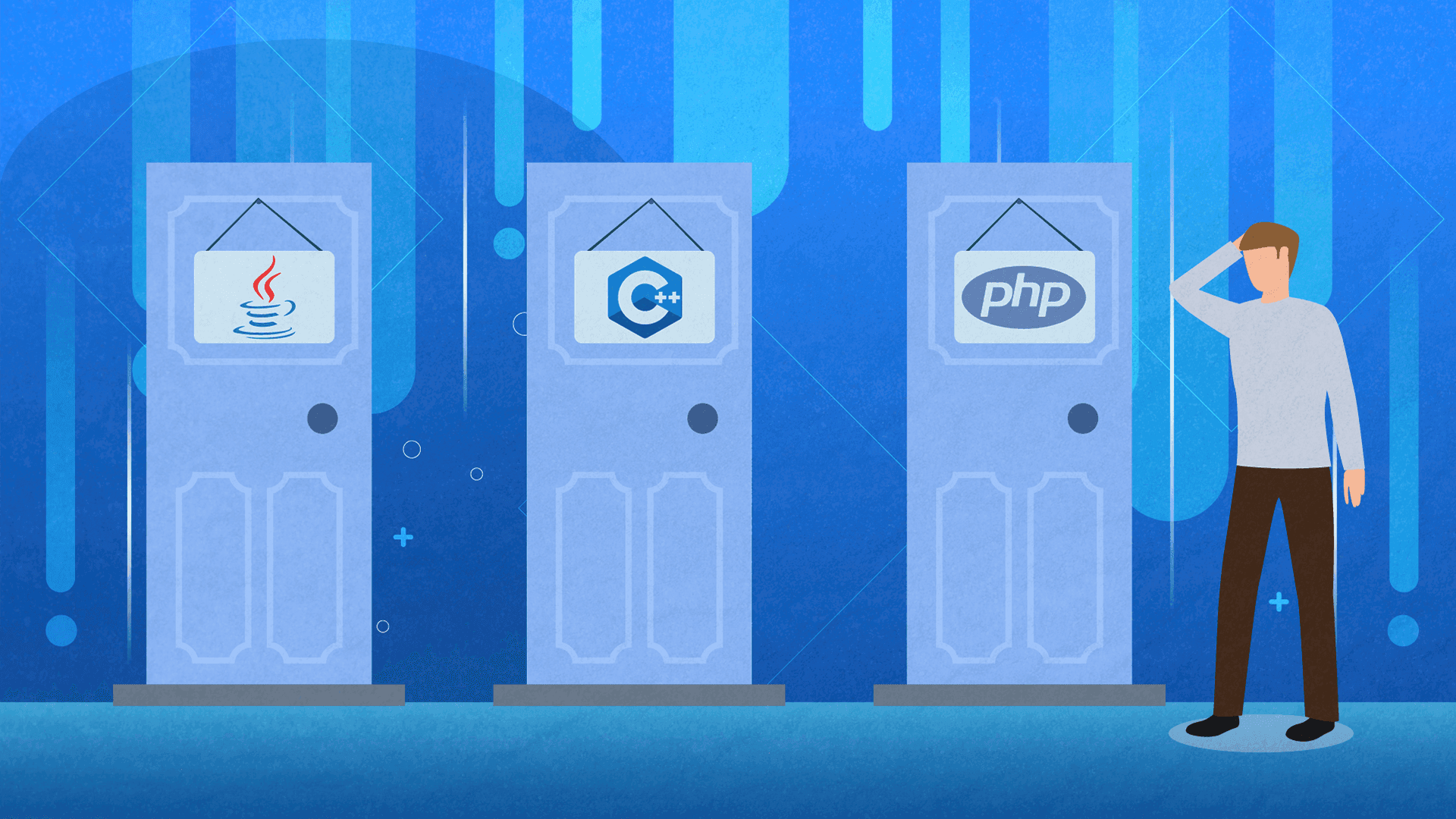How to Choose the Best Programming Language for Cyber Security

For our clients (especially enterprise-level ones), there’s one area that has to be of top-notch quality: cyber security. In addition to hacker attacks, CEO spoofing, malware, and ransomware - infrastructure vulnerabilities and errors in code can lead to compromised security.
While technological advancements such as cloud, mobile, and IoT opened up new business opportunities for big organizations (especially when it comes to efficiency and scalability), they also brought additional challenges in terms for protecting vital data such as sensitive information about their customers, confidential legal and budget documents, etc.
This is why it matters to choose the best programming language for cyber security, in addition to hiring experienced professionals who work in full compliance with legislation such as GDPR, CCPA, HIPAA, and others. Without a reliable external partner who knows the nuts and bolts of cyber security, companies are essentially risking their operations without even knowing it.
In today’s blog, we at Share IT will discuss the best programming languages for cyber security and provide a few tips on how to educate yourself before choosing the optimal solution.
First Thing’s First: There is No Single Best Programming Language for Cyber Security

For instance, enterprise companies that prioritize cyber security might opt for Java, .NET, and even Python. The nature of the project and exact business requirements determine the best choice for the programming environment. Java and .NET both run applications in managed code which prevents common security issues. Still, it’s not fully managed code, so there is a possibility of unprotected code appearing.
A frequent question that we get from our clients revolves around whether one programming language is more secure than another. The truth is, the overall level of security depends on two key things:
- The chosen programming language
- The development practices
If the development practices are not secure, then the choice of the programming language won’t make much of a difference.
According to a white paper by Whitesource, C programming language has the most reported open source vulnerabilities in the past 10 years, followed by PHP and Java. However, we should take these stats with a grain of salt.
Whitesource analyzed the number of reported open source vulnerabilities in a total of seven most widely used languages. C language is one of the most popular ones and precisely because of its wide use - it’s logical that coders had more opportunities to expose and map out vulnerabilities. Bear in mind that this doesn’t mean that it’s inherently less secure compared to the other languages; in fact, it could mean precisely the opposite.
Because of the rise in terms of popularity of open source, the expansion of the global coding community, and the increased attentiveness toward cyber security - more issues are getting discovered. That’s a fact. However, it’s important to bear in mind that not all issues and security flaws are critical.
Now, let’s move on to exploring the exact programming languages. We’ll discuss the top three for cyber security, along with pros and cons, i.e. the types of CWEs found in each language respectively.
Java Programming Language
When it comes to developing enterprise applications (be it mobile or web), Java is one of the most commonly used programming languages, and for a good reason. Java is great for developing enterprise ECM or ERP applications, and many other types of software (especially those for internal use). It is considered to be very scalable, portable, versatile, and of course - secure. JVM enables apps to run on any type of hardware and the language itself is suitable for both native and cross-platform development.
Pros: From a security standpoint, each new release tightens up the ship a bit more, which is great. There are secure protocols that ensure a safe exchange of data between the client and server. In addition, users are protected from malware and there is an internal mechanism for memory management that prevents unauthorized access to memory. Garbage collection mechanism, access control functionality, the ability to declare classes and methods as final - all contribute to Java being very secure.
Cons: When you look at the identified weaknesses in terms of security in Java, you can see that it’s tied to primarily three things: information leak, input validation, and cross-site scripting. The access control functionality can be compromised by trust exploits. Deserialization issues can also occur.
C Programming Language

Pros: C programming language can offer so much in the hands of the right coder. It enables developers to effectively monitor low-level applications and processes. When you bear in mind that IDS and firewalls need to analyze both system behavior and network traffic, this is really handy. In addition, C programming language has minimum data hiding that affects security.
Cons: Buffer errors, input validation issues, and resource management are the security issues tied to the C family of programming languages. Memory corruption can lead to severe consequences in terms of data protection.
PHP Programming Language

PHP is used by 78,9% of all the websites whose server-side programming language is publicly known. This is approximately seven million websites! As you may know, PHP is also behind renowned projects such as WordPress, Facebook, Wikipedia, and Pinterest. The reason why it’s so popular among enterprises and growth-focused companies? It’s cost-efficient, scalable, reliable, and secure. Thanks to its robust features, PHP is great for businesses that rely on agile development and want to decrease time to market because it allows rapid prototyping and fast web development.
Pros: Thanks to its built-in frameworks, PHP makes it easier for developers to create a safe and secure web environment that’s protected from intruder attacks. In addition, it’s fairly simple to comply with security laws and specific requirements defined by the company’s policies. Security restricts and standards (e.g. TLS/SSL configuration) prevents the unauthorized exchange of data and protect the system from external threats.
Cons: Because of some poor practices built into the language, it can be difficult for inexperienced developers to write secure code. This is why cross-site scripting, SQL injections, and vulnerabilities regarding permissions, privilege, and access control - can be a problem down the road.
Can’t Make Up Your Mind About the Best Programming Language for Cyber Security? You Don’t Have to
If you’re looking to develop an app, a website, or some other type of software for internal use within your business organization, there’s no need to shoot in the dark in case you don’t have sufficient expertise in-house.
We can all agree that cyber security is no joke. Outsourcing your software development is a smart move for more than one reason. With sufficient support of a business analyst, transparently defined SLAs, experienced consultants who take care of all the security assessments, and a responsive project manager - you have nothing to worry about. By the way, if you’re looking for a high performing, centralized system with multilayered security, we advise you to consider SharePoint as a potential solution.
At Share IT, we’re proud that more than 90% of our clients come through referrals. This is a pretty good indicator of the trust we earned in the industry. If you have an IT project in mind, contact us for more details and we’ll get back to you ASAP.